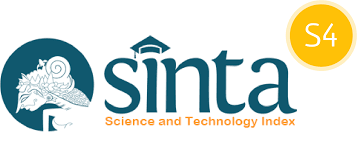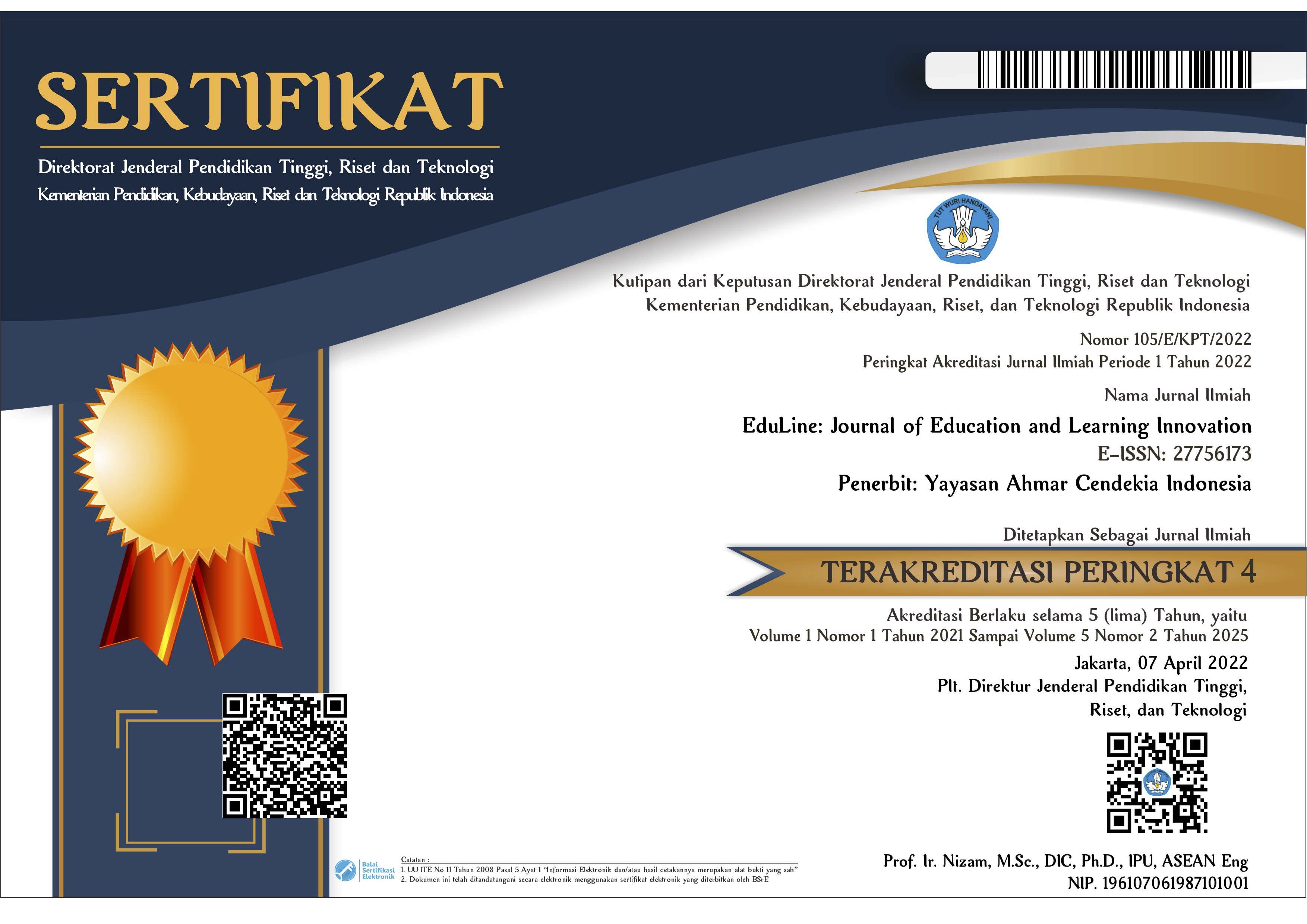Digital Literacy in Teaching English for Young Learners: A Critical Research Review
 Viewed = 0 time(s)
Viewed = 0 time(s)
Abstract
This study explored various studies related to digital literacy in teaching English to young learners in Asia. A systematic review was conducted using the PRISMA methodology to analyze studies published between 2014 to 2024. The screening process found seven relevant studies selected to be reviewed. The data were synthesized to explore the importance and challenges of digital literacy in English language teaching for young learners. The results revealed that using digital tools like digital storytelling, digital pictures, and video-based instruction enhances students’ engagement and students’ skills. However, unequal access to technology and teachers limited digital literacy were identified as challenges. The findings pointed the need of training programs for teachers to enhance digital literacy skills. Policymakers and schools should collaborate to provide the technology and make sure the internet can be accessed equally. Overall, this study highlighted that in teaching English, the use of technology and traditional method should be balance.
References
Awais, M., Tahir, M., & Hussain, M. S. (2024). Informal Digital Learning of English (IDLE) by Young Learners at Primary Level: A Case Study.
Ayu Arsari, M. H. A. (2022). The Importance of Digital Literacy to Enhance Students’ ability in English Language. Jambura Journal of English Teaching and Literature, 3(1), 12–18. https://doi.org/10.37905/jetl.v3i1.13939
Farisia, H., & Syafi’i, I. (2024). Professional Development on Digital Literacy for Teachers in Early Childhood Education in the Digital Era. Tafkir: Interdisciplinary Journal of Islamic Education, 5(3), 360–375. https://doi.org/10.31538/tijie.v5i3.820
Haryanto, H., Ghufron, A., Suyantiningsih, S., & Kumala, F. N. (2022). The correlation between digital literacy and parents’ roles towards elementary school students’ critical thinking. Cypriot Journal of Educational Sciences, 17(3), 828–839. https://doi.org/10.18844/cjes.v17i3.6890
Kumalasari, C. (2023). The Digital Picture as Tools for Teaching Young Learners. JADEs Journal of Academia in English Education, 4(2). https://doi.org/10.32505/jades.v4i2.7038
Kuznetsova, V., & Azhmukhamedov, I. (2020). Advantages and Risks of Using the Digital Educational Environment. 1369–1381. https://doi.org/10.3897/ap.2.e1369
Lynch, D., Smith, R., Provost, S., Yeigh, T., & Turner, D. (2017). The Correlation between ‘Teacher Readiness’ and Student Learning. International Journal of Innovation, 3(1).
Mantiri, O., Hibbert, G. K., & Jacobs, J. (2019). Digital Literacy in ESL Classroom. Universal Journal of Educational Research, 7(5), 1301–1305. https://doi.org/10.13189/ujer.2019.070515
Maya, L., Sumarni, S., & Suseno, M. (2022). DIGITAL STORYTELLING TO SUPPORT YOUNG LEARNERS’ ENGLISH VOCABULARY DEVELOPMENT. Jurnal Bahasa Lingua Scientia, 14(1), 145–163. https://doi.org/10.21274/ls.2022.14.1.145-163
Musthafa, B. (2010). Teaching English to Young Learners in Indonesia: Essential Requirements. 2.
Purmayanti, D. (2022). The Challenges of Implementing Digital Literacy in Teaching and Learning Activities for EFL Learners in Indonesia. BATARA DIDI : English Language Journal, 1(2), 101–110. https://doi.org/10.56209/badi.v1i2.38
Puteri, S. A. (2024). Alpha Generation Perspective On The Use Of Technology In Filtering Actual Information Through Social Media. Primacy Journal of English Education and Literacy, 2(1), 41–53. https://doi.org/10.33592/primacy.v2i1.3535
Sadaeva, F. (2024). The Integration Of Technology In Early English Education: Examining The Efficacy And Challenges. Universum:Psychology & Education, 117(3). https://doi.org/10.32743/UniPsy.2024.117.3.16835
Sehan, Z. (2018). An investigation on the last year EFL university students‟ ideas on using story in teaching English to young learners.
Septiani, N., & Syaodih, E. (2021). Emergent Literacy in Early Childhood: 5th International Conference on Early Childhood Education (ICECE 2020), Bandung, Indonesia. https://doi.org/10.2991/assehr.k.210322.012
Sugara, U., Wulandari, S., Intansari, I., Setiani, N., & Dirgantara, M. R. D. (2023). IS TECHNOLOGICAL PROGRESS AN OPPORTUNITY OR AN OBSTACLE IN GROWING CHILDREN’S LITERACY? 1(2).
Tumanduk, M. S. S. S., Kawet, R. S. S. I., Manoppo, C. T. M., & Maki, T. S. (2018). The Influence of Teacher Readiness to Learning Achievement of Vocational High School Students in South Minahasa, North Sulawesi, Indonesia: Proceedings of the 7th Engineering International Conference on Education, Concept and Application on Green Technology, 481–486. https://doi.org/10.5220/0009013704810486
Vidhiasi, D. M., Hakim, M. A., Humardhiana, A., Ikawati, L., & Aisyiyah, M. N. (2021). Asynchronous Learning: An Answer in the Era of Pandemic. Journal of English as A Foreign Language Teaching and Research, 1(2), 33–43. https://doi.org/10.31098/jefltr.v1i2.620
Wang, S., Wilson, A., Jesson, R., Liu, Y., & Meiklejohn-Whiu, S. (2023). Opportunities to learn literacy in digital classrooms in New Zealand primary schools: Does class achievement level make a difference? Teaching and Teacher Education, 130, 104171. https://doi.org/10.1016/j.tate.2023.104171
Wei, Y. (2018). Digital Literacy in Education: From Local to Global. 664.
Yu, L.-T. (2018). Native English- speaking teachers’ perspectives on using videoconferencing in learning English by Taiwanese elementary- school students.
Copyright (c) 2025 Wachidaturrohmah, Nur Afifi

This work is licensed under a Creative Commons Attribution-NonCommercial-ShareAlike 4.0 International License.

 https://doi.org/10.35877/454RI.eduline3320
https://doi.org/10.35877/454RI.eduline3320








